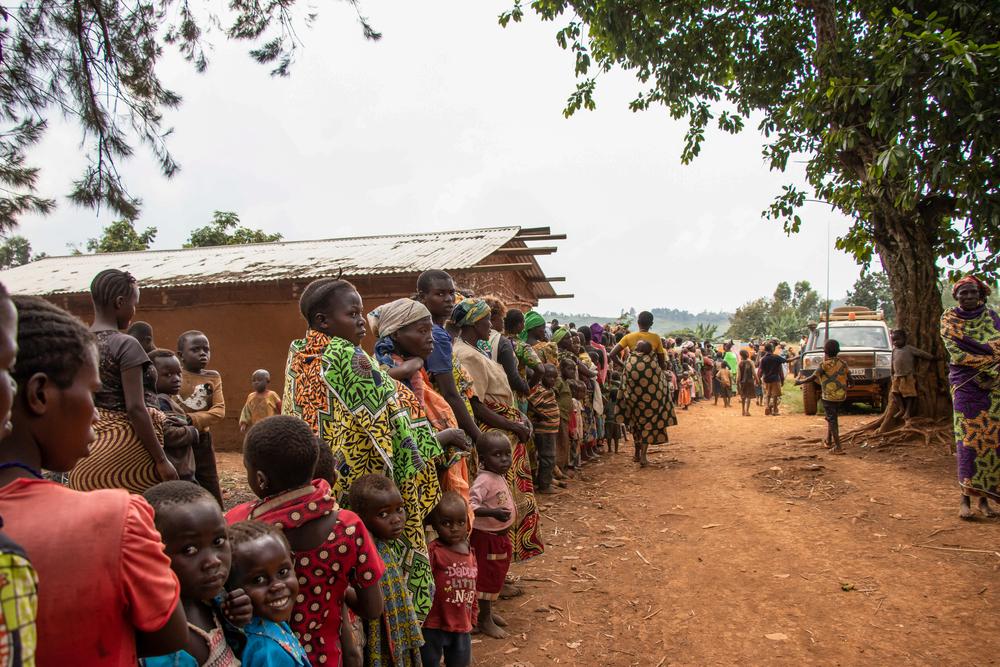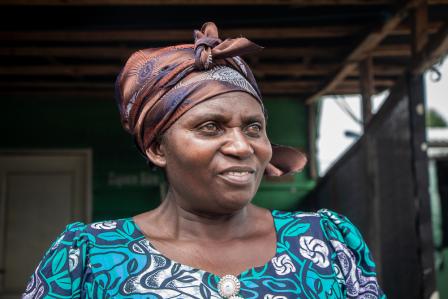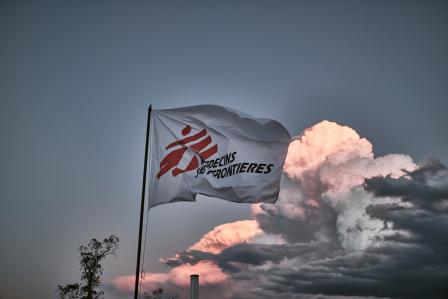DRC: Insecurity leaves people deprived of basic medical care in Ituri

The queue at the Tse Lowi internal displaced persons (IDP) site before the Doctors Without Borders distribution. Families with children under five years old, the most vulnerable to malaria, received a mosquito net. The teams also took advantage of the distribution to monitor the state of malnutrition of children at the site. DRC, 2020. © MSF/Solen Mourlon
On 28 October, unknown attackers targeted a Doctors Without Borders / Médecins Sans Frontières (MSF) convoy leaving two aid workers injured on the road of Bambou, in Ituri. The attack took place as the Doctors Without Borders vehicle was returning from an area where our teams had been responding to people’s needs. Currently, the perpetrators and their motives are still unknown.
“Today, we do not have safe access in the area so we cannot relaunch activities,” says Stéphane Hauser, Doctors Without Borders project coordinator in Nizi. “There is a need of engagement from all parties of the conflict to ensure the safety of aid workers with no exceptions,” he says.
Since the attack, Doctors Without Borders activities supporting the Ministry of Public Health in the region of Bambou and Nizi have been suspended. As a result, medical teams will no longer access these two locations and will not relaunch activities until further notice. In the meantime, Doctors Without Borders has called on the competent authorities to launch an investigation into the incident in Bambou.
For the past four years, Doctors Without Borders has been working to provide medical care to wounded people affected by the conflict in Ituri, on both sides of the front line. “The forced suspension of activities is depriving people of a minimum medical assistance that our activities were previously ensuring,” says Hauser.
In order to meet the needs of the people affected by a deadly conflict, it is essential that access be facilitated and secured in all disputed areas, where our humanitarian action is guided by the principles of neutrality and impartiality.
Violence has been raging in Ituri province since 2017, particularly in areas where Doctors Without Borders is managing projects. “In order for Doctors Without Borders to resume activities, there needs to be immediate understanding and acceptance of our humanitarian aid and principles.
“This must be clarified quickly so that we can establish whether the conditions allow for us to safely return,” says Hauser.
Doctors Without Borders calls on the FARDC*, CODECO* and all stakeholders involved in the conflict in Ituri to ensure that the safety are met in order to allow the resumption of humanitarian aid throughout the province.
Doctors Without Borders / Médecins sans Frontières (MSF) works according to the principles of impartiality, neutrality and independence. In Ituri province, in collaboration with the Ministry of Health, Doctors Without Borders supports four general hospitals (HGR), 12 health centres, three health posts and 32 community healthcare sites in the health zones of Drodro, Nizi and Angumu for the treatment of paediatric diseases, malnutrition, malaria, sexual violence and mental health.
Doctors Without Borders' activities in Nizi and Bambou have provided care for more than 470,000 people, including nearly 175,000 in Nizi, 176,000 in Bambou and 120,000 internally displaced people. Within this project, Doctors Without Borders teams carried out more than 33,000 consultations in the first half of 2021 and conducted 21,229 awareness sessions.
*FARDC: Armed Forces of the Republic democratic of the Congo/ CODECO : Cooperative for Development of the Congo

